Trafficked women speak into the silence
Voice of Freedom supports African women who have escaped trafficking in the Sudan and Sinai as they speak about their lives through photography and text. The goal of the project is to make space for the women to speak, on whatever subject and from whatever perspective they choose. The photographs you see here are the work of a group of women living at the Ma’agan Safe House in Israel, where the Voice of Freedom workshops took place this October 2013, supported by a team from PhotoVoice.
The Safe House shelters survivors of human trafficking – most have escaped the Sinai torture camps, in northern Egypt. These camps are the ultimate destination of those who have been trafficked from Ethiopia and Eritrea through Sudan, being ‘bought’ and ‘sold’ many times along the way. The women are subjected to rape and torture, released only after their families or the international community pay ransom money to those who hold them captive. They are freed by the Egyptian border with Israel, which they cross, finding eventual refuge in the Safe House.
DESTA GETANEH
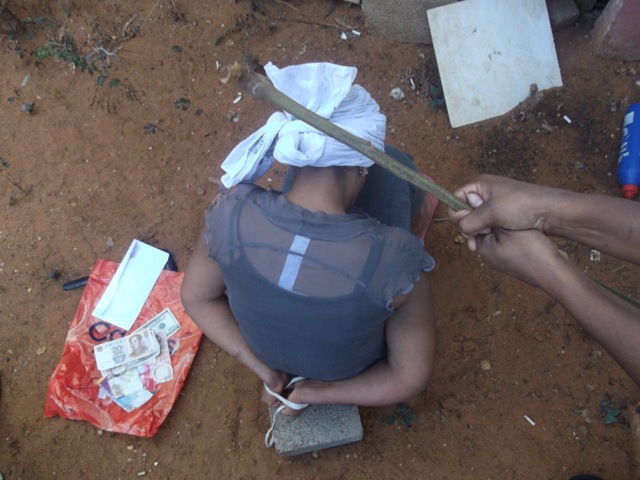
Photo: Desta Getaneh
It’s no use for people to be given a lot of money once they’re in danger and in trouble. Those people who can help others, they should do it when the help can actually save them. It doesn’t mean anything when people send money for coffins.
Refugees who pass through this experience are really different – although we are human beings and we have our bodies on us after the experience, the people who pass through the process are really new. They have a different personality, though they look the same.
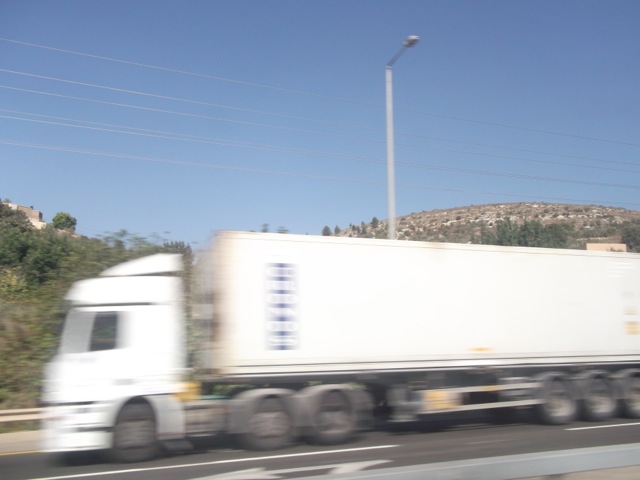
Photo: Desta Getaneh
This is exactly the type of truck that we were travelling in after we were sold, going into Sudan. We didn’t see the capital in Sudan, but in Egypt, in Cairo, we saw that we had arrived because we saw the sign.
They were trying to avoid the traffic police asking questions, so they put us in here and it looked like goods being transported. Before we stepped in the truck, we were told clearly that we were sold – they told us who sold us, for how much and where we were headed.
In the truck, because everyone knew that they were sold, they could potentially scream and call attention, so there were people in between us who had knives, to make sure… They showed us that if anybody tried to scream they would kill them, right there. Nobody wanted to ruin his or her life, so nobody did that – or if they did, they would kill that person and set an example in front of us.
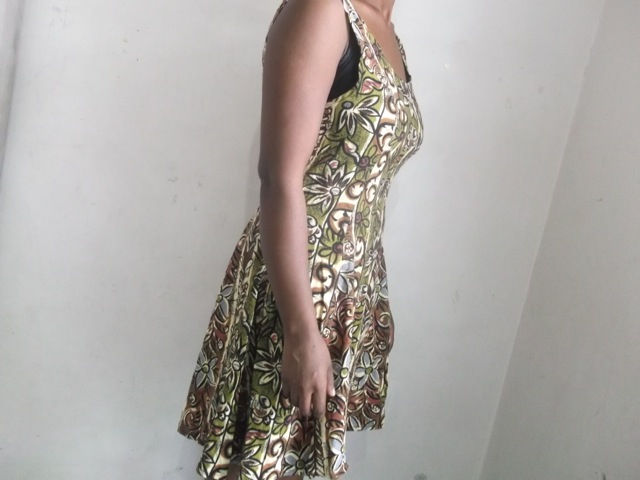
Photo: Desta Getaneh
Fleeing a country is very different for a woman because we are created differently and by nature we can not resist the pain and troubles that living in the desert causes us. And as women, even if we are beaten like the men, the places where we are beaten, the way we are beaten – all these things have hurt us more.
Men also get raped, but they don’t get pregnant. Women get pregnant; they get beaten while they are pregnant; they go through the pain while they are pregnant. The traffickers don’t want their child to be raised by the woman they impregnated so they beat her to make sure that the child is aborted. A lot of women go through that. Even if they don’t die, and the baby dies inside, their health is destroyed and when they go out they are more likely to die from various illnesses.
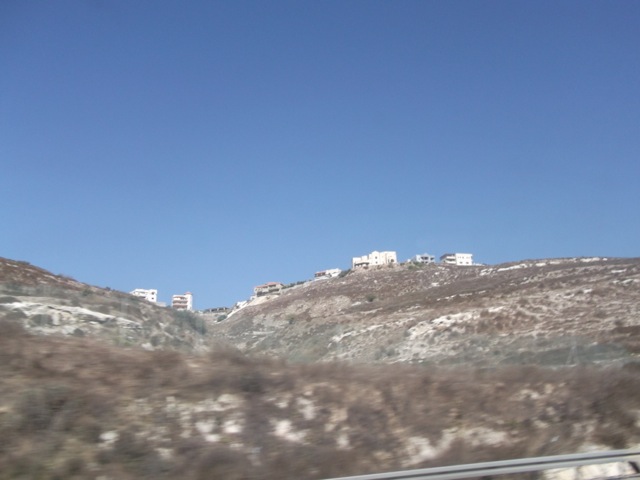
Photo: Desta Getaneh
This place reminds me of the journey going into Egypt.
It was a very cold place and the traffickers heard that there were police on the border, and so they wanted us to stay here because they didn’t want to run into the police.
And here in the very cold place there was no food, no water – there was nothing – but we stayed here for three days, and we were surrounded by the traffickers. We could see the city but we couldn’t go across because we were surrounded by them. Actually, there were four people who tried to get there – to the town that we could see. They escaped and almost made it, but the traffickers caught them.
The traffickers brought them back and it was really difficult to see how they beat them in front of us.
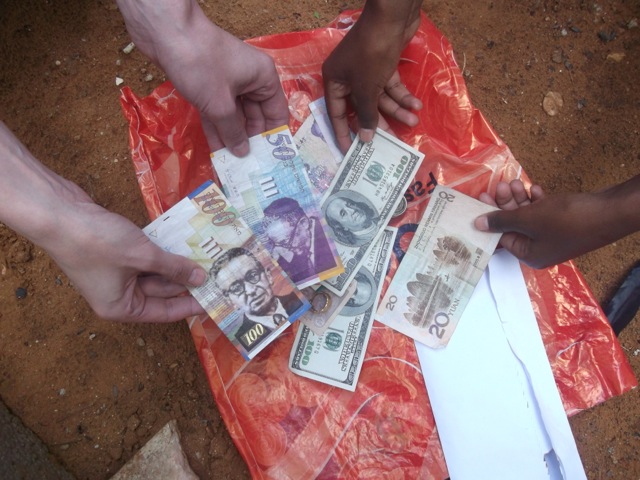
Photo: Desta Getaneh
My mother had to sell the family home, and separated from her husband, to send the money for my ransom – and that took away the future of my siblings as well.
Mostly, relatives send money to pay the ransom at the last minute – when they’re not even sure if the person who has been kidnapped will survive.
It’s no use for people to be given a lot of money once they’re in danger and in trouble. Those people who can help others, they should do it when the help can actually save them. Relatives who could have given the person money to survive while they were in their own country are sending it when it’s too late.
It doesn’t mean anything when people send money for coffins.
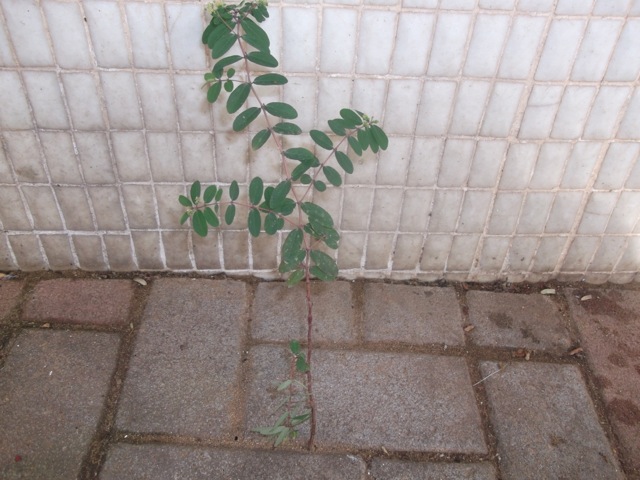
Photo: Desta Getaneh
I took this picture because it expressed my perspective on my dream. People express things in their own way, and this plant is on a stone – there is no watering to it and there is no food to it, but it still exists.
Some people are like that. There are people who are surrounded by nothing, there is nothing left in their life, but it’s amazing how they are still standing. So my dream, as I said earlier, is to give voice to people, and I want to do that with people who feel as if they don’t have anything else in life. In the future I want to be doing that for people who are represented
by this picture.
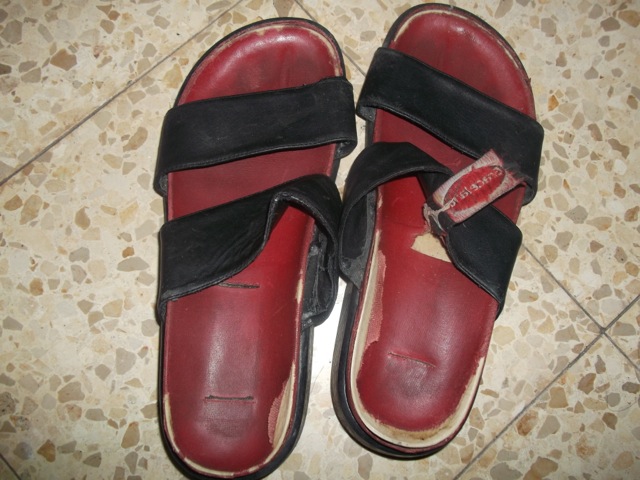
Photo: Desta Getaneh
I brought these shoes with me from Ethiopia. Someone decided to give me a pair as a present – as a sign of affection – two weeks before I started my journey. Without these shoes, I probably would have made the journey from Ethiopia to Israel in my bare feet.
I remember how on the journey I used them as shoes during the day, and at night they were my pillow.
These shoes are still here with me. They remind me of everything I’ve been through – and I will always keep them.
ZENEBECH ZELEKE
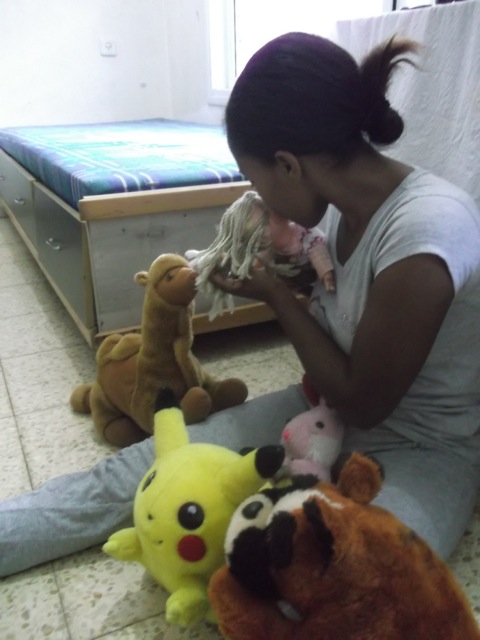
Photo: Zenebech Zeleke
Ever since I was a really young person up until two years ago when I left Ethiopia, people were not my friends; the dolls were my friends. After I came to Israel, I missed my doll friends and I like to kiss dolls here when
I see them.
My father died very early – I don’t know him, and my mother did not have enough money to look after me so I grew up with my aunt. I didn’t really have close relationships with people. My aunt didn’t treat me well. She didn’t support my education and just wanted me to work at home. I used to be depressed and worried, and I used to get sick. There was no one I could share my ideas with or tell my story to.
I started having people friends after I left Ethiopia, on my journey. That’s when I started knowing people – I really had a very lonely life when I was in Ethiopia, but the dolls were my friends.
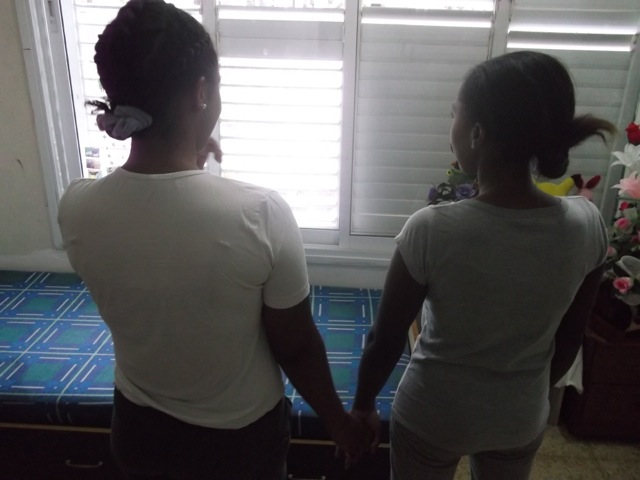
Photo: Zenebech Zeleke
My first human friend was a girl I met on the journey from Ethiopia.
There is a place called Kasalam Maida – it’s in Sudan, and it’s like a container where we were hijacked by people, and I met her there.
The container is in the middle of nowhere. There’s a thing like a tent where they steal people – the kidnappers – and they put them in there and they don’t give them food, really ill-treat them. That is where I met her.
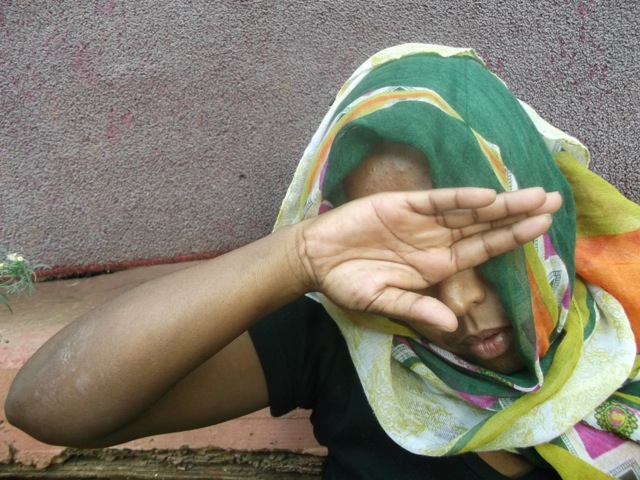
Photo: Zenebech Zeleke
The one thing I want to portray is how people can just, without their consent, without their will, and without their wish, be taken away from where they are to a place that they never wanted to come to.
For example, a person from one border is blindfolded, beaten and taken away from the border to another place.
I had thought about it myself – that I would portray the experience, and teach others, using film. That’s what I was planning to do when I go back to Ethiopia. It doesn’t matter what the consequences are – whatever demands it makes, I’ll do it because I just have to tell the story.
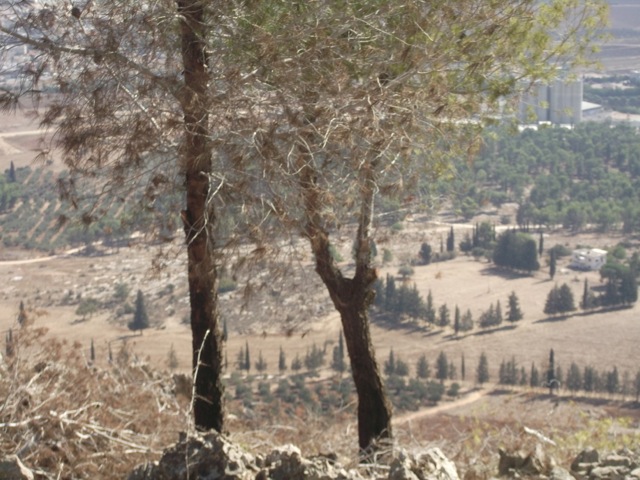
Photo: Zenebech Zeleke
This Photograph reminds me of Ethiopia. It is really beautiful. There are trees, the view, the sun, the rocks – everything in one picture.
When I go back to Ethiopia, what I will feel is a great level of happiness. One thing I want to do when I go back is to change my mother – change the mother I left because of poverty, I mean. Transform her life. For instance, when I was in Sinai in Egypt, because my mother didn’t have enough money, she had to sell her house, and herself, to pay the ransom for me to be released.
If I can, I’ll learn some skills while I’m in Israel, and when I go back to Ethiopia I will learn and work at the same time.
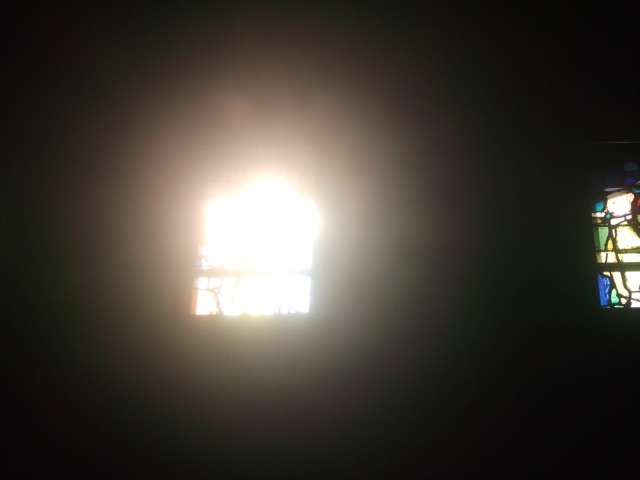
Photo: Zenebech Zeleke
There is a story that you tell, and a story that you don’t want to tell – but there are some stories that I want a lot of people to see, very clearly, from my own experience.
There are things that you go through and want to tell other people, and it makes you feel better. Some of the thing that could be told are: they used to force us into taking drugs, and used to bury people alive, and we have seen them beheading people.
The light gets in – you can let it in and it’s positive. But the darkness it doesn’t let you in – it just swamps you, and that’s what it does.
TIZALU BRAHAN
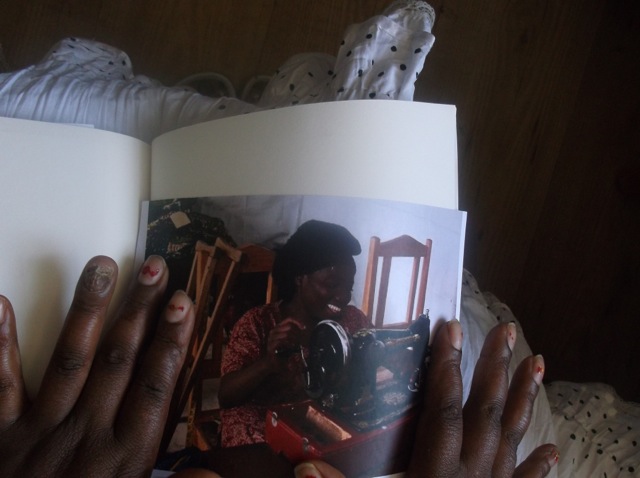
Photo: Tizalu Brahan
This is the picture I chose the other day when we did the exercise about our dreams for the future. I chose this picture because this is the skill I would like to have in the future.
First you learn how to sew manually, with the pins, and you learn how to do it with the machine – that is what the woman is doing with the machine. Where I grew up in Ethiopia it’s a city, so you can find these machines there and everybody uses them. I didn’t learn to do any sewing there because when I first joined the education, the first year, I just left, I fled the country.
My mother died one year after I started, so I fled to Sudan. We were 60 people. First it was just me, then I met the rest in Metama in Sudan; the broker who took me left me with them – we went into a big truck and is how we came.
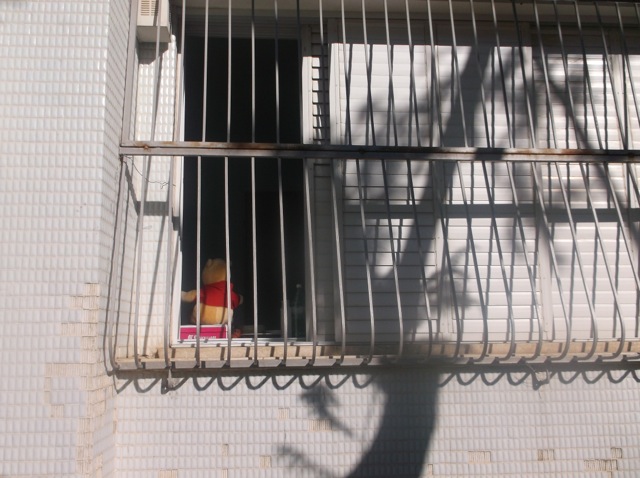
Photo: Tizalu Brahan
This is my room. I took this picture because I always like to see it. This is the first place I was happy after they stole me and I didn’t see my father again.
After the journey, and all the problems, I came here to this clean place. I sat in the prison in Israel for one year, and here for six months now.
I’m very happy that I came here to the shelter. Here my life is really nice, I’m seeing different things. There, in the Sinai, we had no clothes and the place was not clean… the sand and the not clean place… it was all trouble.
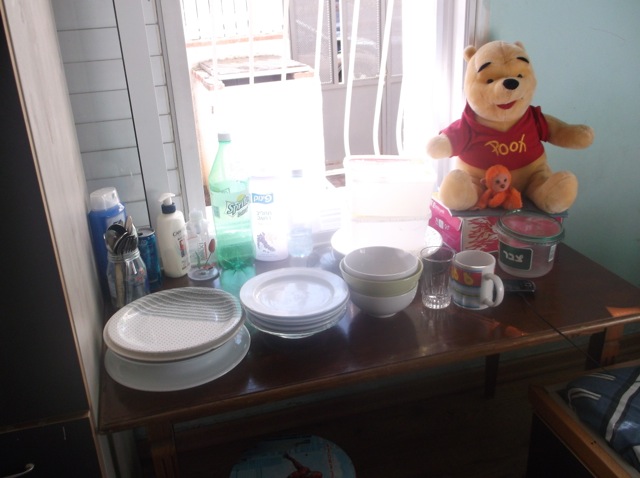
Photo: Tizalu Brahan
All this is mine. Yes – I have enough things even for a family. We receive it from the safe house. I wash empty bottles and store them too.
I put my food on the plate, put it here on the little stool… bring my food from the kitchen and eat here. I can have guests, of course.
This is the set I use when I invite friends, and when we finish I always clean it really well. I have a lot of friends – sometimes we eat together, and sometimes I eat alone. This set is really special – only for my friends who come from outside the safe house. These are the friends I made in Sinai – we entered Israel together, from the camps in Sinai. Sometimes I go and visit them, but I prefer not to because I don’t really like to go outside the safe house. A lot of them don’t work so they have free time, and I have my job, and after my job I come back to the safe house and rest.
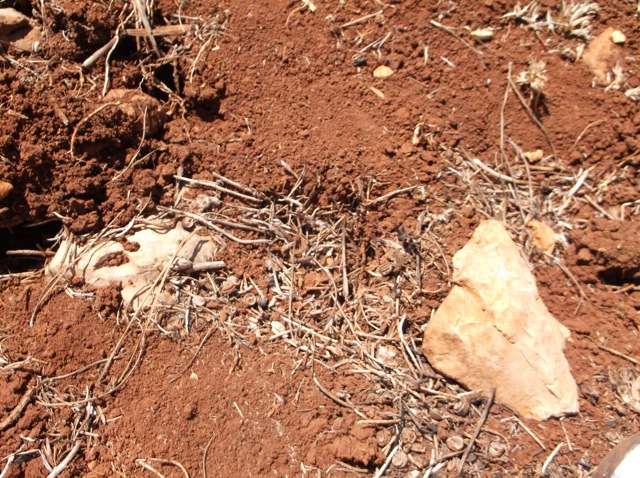
Photo: Tizalu Brahan
This is nice, but the red soil that we saw on our journey was different – everyone was sick and people had flu and people were falling… there were men with us and we were on top of each other and some people were just left, and this reminded me of that.
There’s a desert before going into Sinai – there were many people, and we were on top of each other; there were men… different men… and people were sick. Yes, when we were there, there was nothing – people didn’t have clothes, there was no food, people were just struggling… and the trash and the dust… it was so dusty, you had to eat it at some point because it was everywhere. Yes, the red earth reminded me of that – I’ll never forget it. Some people have forgotten but I’ll never forget it. It’s linked with my bone.
We come here to Israel and everything is new – there was no water there, here they give us water, different clothes, different things. Here I have improved a lot, and I remembered that and I took a picture of it.
The future will be improved and better.
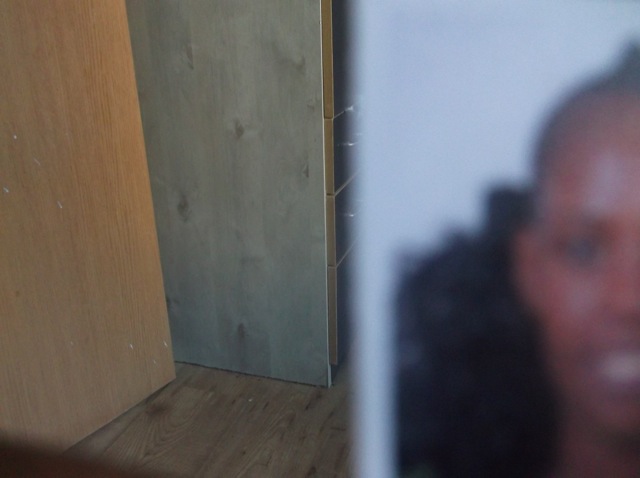
Photo: Tizalu Brahan
I took this on Sunday in my room in the safe house. It’s a photograph of a picture of me, one that was taken for my passport two months ago here in Israel. I took this picture because I loved it and I wanted to tell a story with it – my hair-do, it’s something that I never did in the past, and the clothes I was wearing… everything was so good and so fine. I wanted to capture that.
I am a very good person, that’s what you can see in the picture – I’m not always clever, and I pretty much follow… go along the river.
After everything I’ve been through, I feel as if I have the whole world in front of me, everything I need. I didn’t have an easy life in Ethiopia – I had a very tough life. I felt as if I disappointed my mother. And after everything that happened to me I came to a place I never knew: Israel.
Now that I’m here, I want to capture and save everything through my pictures. I want to express my feelings – to express that I discover new things, and a lot of happiness.
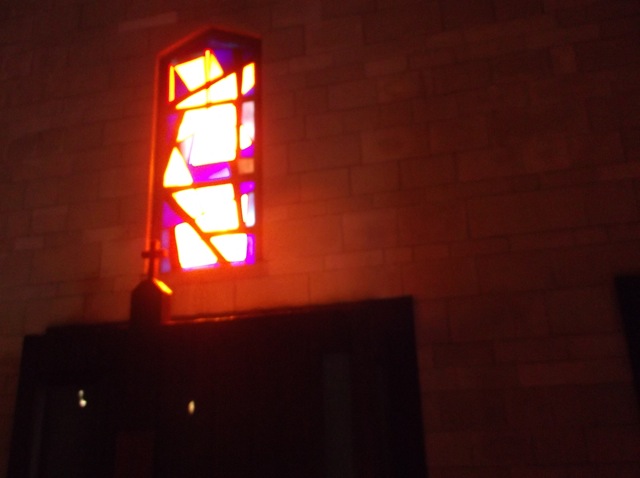
Photo: Tizalu Brahan, Basilica of the Annunciation, Nazareth
This was one of the first pictures I took, exactly when I entered the church. It was a Wednesday, a fasting day for Ethiopian Orthodox – to go to church on that day was a religious experience for me, so I took this picture of the window with the sunlight coming through it.
In Ethiopia I used to go to church – but here in Israel it was the first time.
I felt a kind of joy in my heart when I entered, specially because I didn’t expect to be there. When I first came to Israel I didn’t feel like going to church but now I want to start.
At the camp in Sinai I always prayed to God. When we went to the church in Nazareth it really reminded me of God – the reason I am here in Israel safe and well. God brought me here safe and well.